How Peter Dutton entered 2025 with fatal over-confidence
Peter Dutton and his tight inner circle entered the 2025 election year brimming with a fatal over-confidence – a self-belief that lasted right until the eve of the May 3 election.

Peter Dutton and his tight inner circle entered the 2025 election year brimming with a fatal over-confidence.
It was a self-belief that lasted right until the eve of the May 3 election. The numbers coming in from the Coalition’s pollsters had them ahead in seats in Victoria and comfortably holding electorates in Queensland.
But the Dutton team, buoyed by the Coalition’s resurgence following the doomed Indigenous voice referendum and subsequent Labor immigration and political scandals, had sleepwalked into a nightmare.
As election night revealed very different numbers and the Liberals and Nationals surveyed one of the worst defeats in Australian political history, Coalition figures lamented that it was now a 10-year proposition before MPs or Senators could realistically believe they could be cabinet ministers.
And some senior frontbenchers began to make their views of the Dutton team very clear. “It was the most dysfunctional organisation I have ever worked for,” one said.
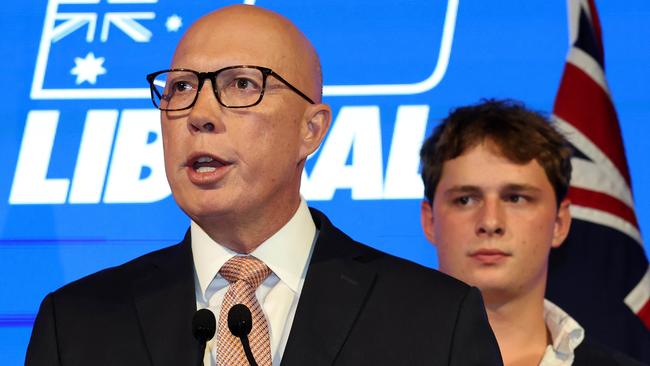
Dutton’s false hope that somehow a major political party could win a historic election without any substantive reform agenda or policy story was fuelled by an echo chamber, overly optimistic internal polling and self-belief.
Senior Coalition figures on Sunday said the general theme of the past two years had been lack of empowerment and a lack of trust from the leader and leaders’ office for his frontbenchers. There were even accusations on Sunday of difficult relations between Dutton’s office and that of his deputy Sussan Ley, who must now organise the process to choose a new Liberal leader and is considered a possible successor herself.
With the ashes smouldering after Saturday’s catastrophic result, the task of rebuilding Australia’s major conservative party is now expected to fall at the feet of either Treasury spokesman Angus Taylor, Ley and opposition immigration spokesman Dan Tehan. While some have raised opposition defence spokesman Andrew Hastie as a wildcard option, that scenario is unlikely.
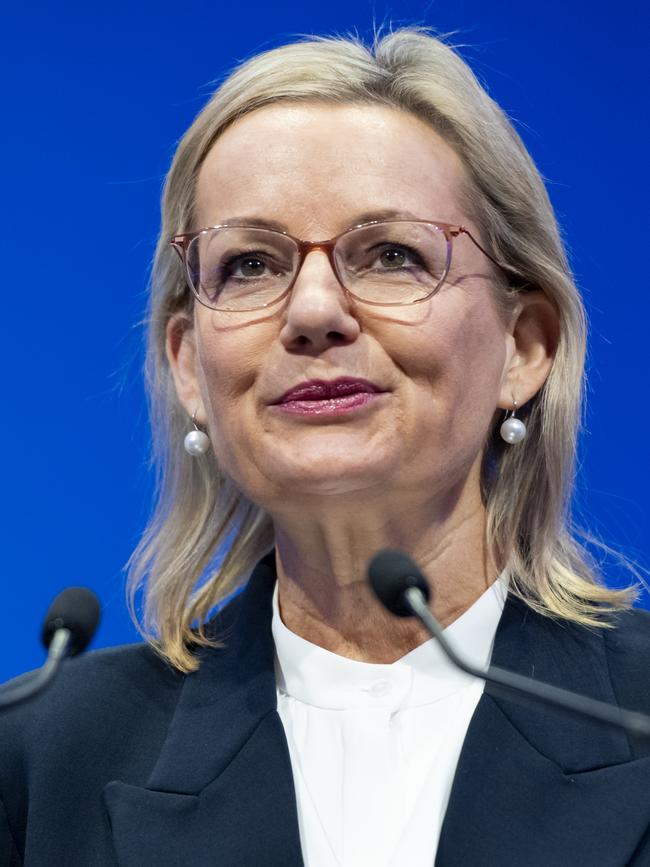
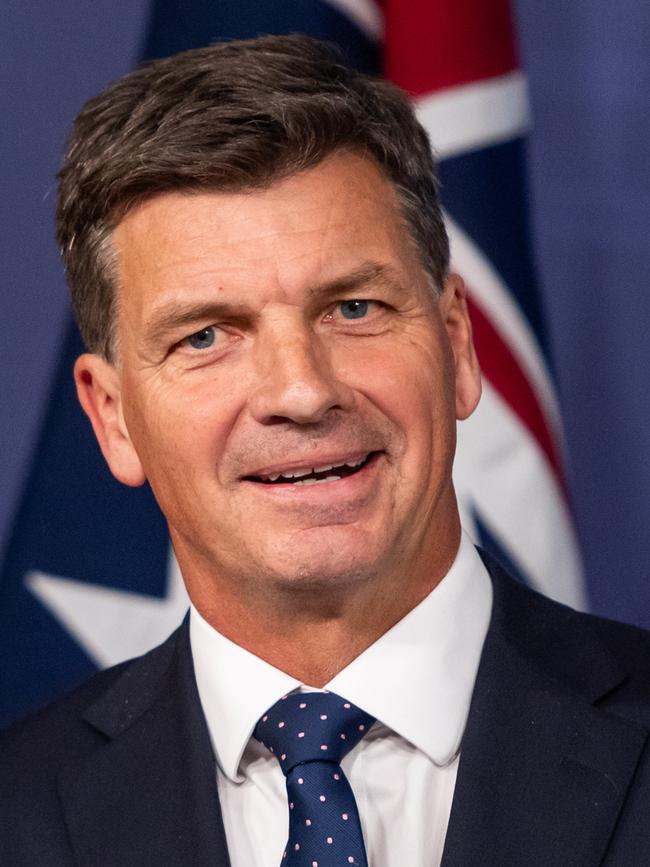
Senior Liberal MPs said “high internal expectations were an absolute killer”. Earlier in the week, Coalition figures had recoiled when Canadian opposition leader Pierre Poilievre lost his seat. Similar to the Coalition, Poilievre’s Conservative Party had suffered a Donald Trump-induced crash in the polls that ended in a devastating defeat.
But even on the eve of polling day and after a rough campaign, the Liberals were not getting any sense of the bloodbath awaiting them. Strategists close to the Coalition nerve centre said tracking polling had indicated a rump of southeast Queensland seats were safe. They fell to Labor and they fell hard.
Early in the campaign, pollsters had the LNP winning Bonner on a margin of 55-45. Labor’s Kara Cook beat Ross Vasta, who had held the seat for 15 years, by 55.6 to 44.4 per cent.
Late in the campaign, LNP polling predicted their Cairns-based seat of Leichhardt would be won by between 53-47 and 52-48 per cent. Latest counting had Labor ahead 56.8-43.2.
And despite Labor and Climate 200 polling showing that Dutton’s seat of Dickson, the state’s most marginal seat held by the 54-year-old since 2001, was in play, Coalition spot polls suggested he would be fine.
After 24 years of fending off Labor, union and GetUp challenges, Dutton lost his seat on a two-party-preferred margin of 56.5 to 43.5 per cent.
In the final week of the campaign, Coalition HQ strategists based in Parramatta had briefed-out to journalists that the Liberals and Nationals could still win at least 10 seats and that Labor would plunge into a minority government. The polling invoked by Coalition insiders encouraged Dutton to go on the attack.
Analysis by The Australian shows that over the five-week campaign trail, Dutton made 74 visits to Labor, Greens, teal and independent electorates across the country compared with 11 stops in Coalition-held seats. Of the 11, five were to his own Dickson.
After some of the Coalition’s brightest stars were defeated, MPs and senators are divided on who could resurrect a Liberal Party undermined by cashed-up Climate 200 teal independents, an emboldened ALP, a dwindling and ageing membership, weak and fractured state divisions and voters who are abandoning the brand.
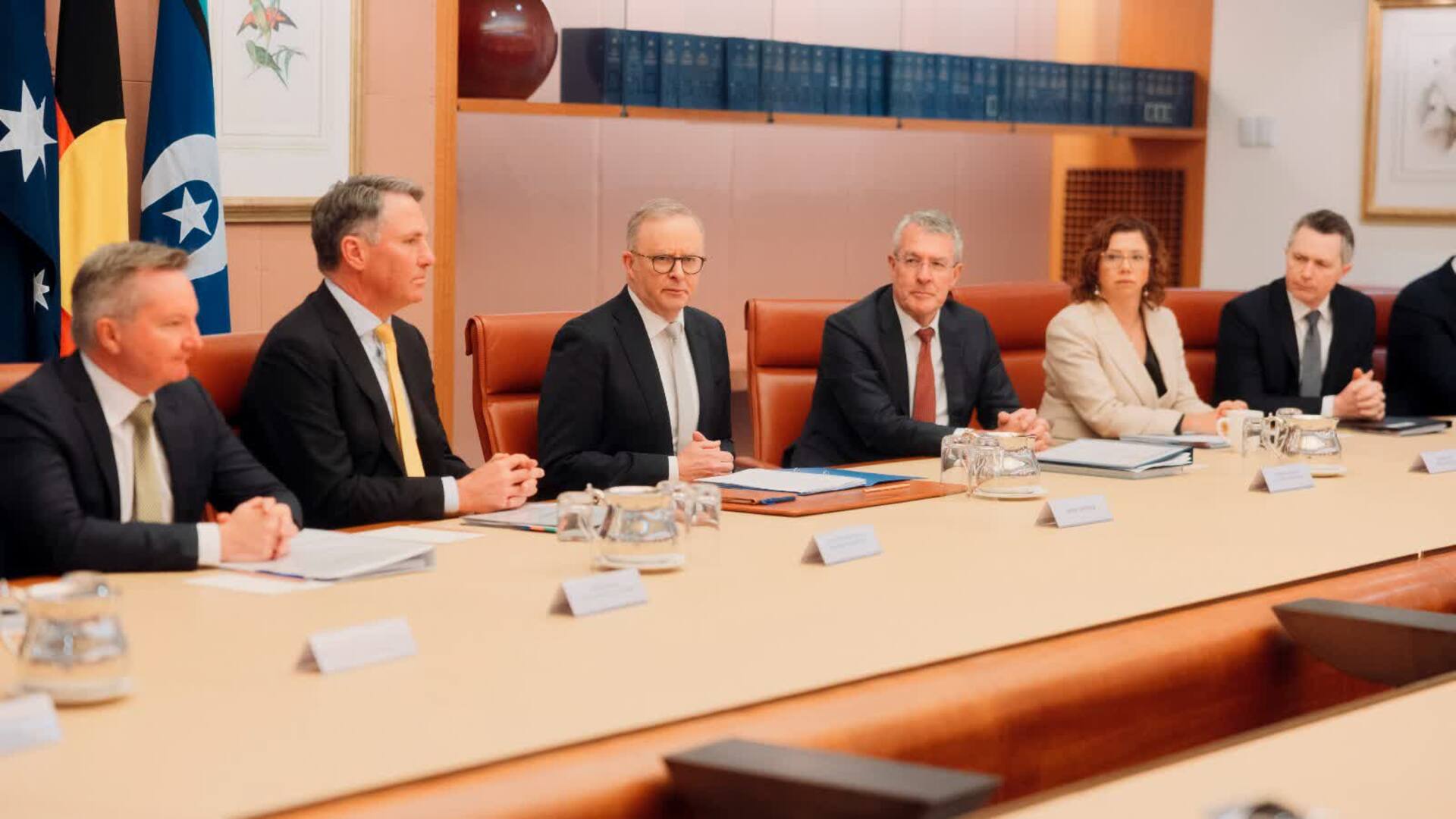
One Opposition MP declared the result demanded a massive course correction, arguing it was a “failure of our research”. MPs also noted Dutton’s aim of winning seats from Labor in the outer suburbs had failed, while also making it harder for the Liberals to win back seats from the teals.
Coalition MPs and senators said there was a collective mistake in failing to put internal pressure on Dutton over the policy and strategy formulation, arguing Liberals were too quick to offer blind loyalty on the expectation the policy work was being done.
While some in Coalition ranks believe Dutton was forced to take all of the bullets because of a lack of “bench strength”, others said the reality was federal elections were now “presidential campaigns”.
Declaring their economic agenda had failed, one MP said Taylor – who bucked the national trend to win a swing in his NSW seat of Hume and grow his margin over Labor – should be considered a co-architect of the defeat.
A senior Coalition frontbencher was scathing of Ley on Sunday. The 63-year-old, who received an almost 9 per cent swing against her in the previously safe regional NSW seat of Farrer, is notionally the new opposition leader until the position is finalised post-election.
At 4.46pm on Sunday, Ley released a statement thanking Dutton and MPs who lost their seats and flagged a meeting to elect a new leader and deputy once all seat counts were finalised.
“Where was she? She should have stood up in the morning and taken responsibility for the loss,” the frontbencher said.
“Think about all of the candidates, MPs and staff who lost their jobs? It’s not like Dutton can speak on the party’s behalf.”
Others were more sympathetic to Ley, saying Dutton had frozen her out of the leadership group, major policy decisions and ultimately the five-week campaign.
The bad blood and counter-claims of leaking stemmed from Dutton’s decision to deny Ley foreign affairs, ignoring party rules that the deputy leader can choose her portfolio.
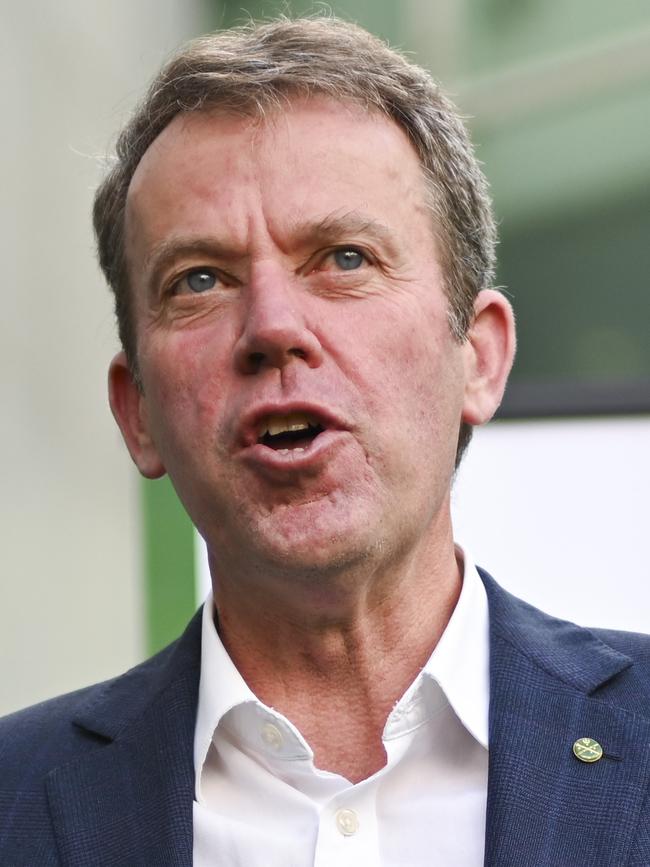
With conservatives unlikely to endorse Ley and moderates opposing Taylor, Tehan has been floated as a Scott Morrison-like candidate who could come down the middle. A former trade and education minister, Tehan was one of the few Liberal MPs who fended off a big-spending Climate 200 challenge in his regional Victorian seat of Wannon.
Senior Liberal sources rejected claims from MPs that not enough work had been done on the timely delivery of substantive economic policies. They said Labor scare campaigns had made it politically impossible not to match the government’s spending pledges on health, disability and temporary cost-of-living sugar hits.
If the Coalition had pledged to index income tax brackets, the commitment would have cost anywhere between $30bn and $50bn. Without cost-of-living measures, including halving the fuel excise and providing one-off tax relief for low-to-middle-income earners, Liberal figures said Labor would have accused the Coalition of doing nothing to help.
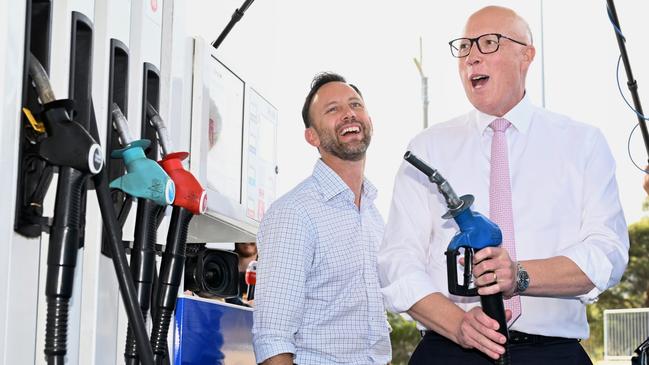
The decision to immediately oppose Jim Chalmers’ meagre tax cuts after the March 25 budget was predicated on using the money to improve the books and fund policies. Dutton made a captain’s call within 24 hours of the decision to pump funds into a dramatic increase to the defence budget.
Senior Liberal figures say the three most damaging Labor scare campaigns were around “cuts to pay for nuclear”, deeply personal character attacks targeting Dutton and weaponisation of the abandoned work-from-home policy. A source said the Coalition had to get better at defending leaders, pointing to Labor’s fatal attacks on Tony Abbott, Malcolm Turnbull, Morrison and now Dutton.
Senior Liberal sources also said Labor, Climate 200 and others had smashed them on digital advertising. All of these concerns will be addressed in an official Liberal Party post-mortem.
The bloodletting in the Coalition is not contained to the Liberal Party. Reflecting on the failed Coalition campaign, former Nationals leader Barnaby Joyce said “if you ignore your mistakes, you’re absolutely bound to repeat them”.
Asked about the Nationals votes on leader and deputy leader after every election, Mr Joyce said: “It is up to the party room to decide who the leader will be.”
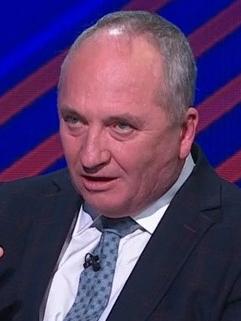

Despite David Littleproud’s attempts on Sunday to suggest the Nationals had achieved great success on Saturday, only a handful of his MPs won swings to them, the party failed to win back defector Andrew Gee’s central NSW seat of Calare, and deputy leader Perin Davey was on track to lose her NSW Senate spot.
Senior Nationals sources, who believe the party could still win the previously safe Victorian Labor-held seat of Bendigo, said they expected Littleproud to remain in his post despite sharing some of the election bloodbath blame.
If Davey loses her Senate position, ambitious Northern Territory senator Jacinta Nampijinpa Price is expected to put up her hand. Price, who was criticised internally for borrowing Trump’s phrase and pledging to “make Australia great again” while standing next to Dutton, on Sunday launched a forceful rebuke of critics and declared the Coalition campaign was not “good enough” and had failed to “articulate the vision, the real solutions Australians wanted”. The Country Liberal Party senator, who sits in the Nationals party room, said she would not “change who I am” because of the result.
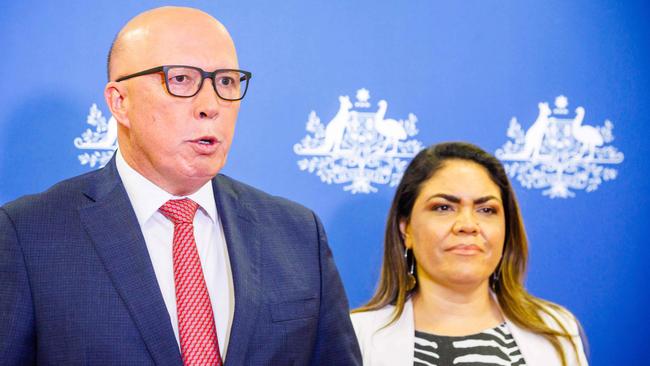
While both Coalition parties will consider walking back from the nuclear policy weaponised by Labor, one Nationals MP said: “We have to consider the bigger picture, responding to geostrategic threats and better communicating our economic piece.”
MPs said nuclear could still be part of the policy mix at the next election, although some wanted it focused purely on legalising the energy source rather than backing for government-owned reactors.
Liberal senator Andrew Bragg – from the NSW Moderate faction – said the party needed to “recapture” the political centre. The moderates, who once shared equal power with conservatives, were decimated following the rise of the teals and Morrison’s 2022 election defeat. “There needs to be a better understanding of modern Australia, of women, of multicultural communities and their priorities. Elections in Australia are won in the centre,” Bragg said.
NSW senator Dave Sharma, a Liberal moderate and former diplomat who is expected to claim a frontbench position in the election aftermath, said the “devastating loss” was both a failure of strategy and campaigning. “A loss of this magnitude demands a serious set of reflections, reviews, and internal conversations about our policies and direction,” Sharma said. “That will take some time. The nation is best served by a strong Opposition. We need to ensure the Liberals can provide this.”



To join the conversation, please log in. Don't have an account? Register
Join the conversation, you are commenting as Logout